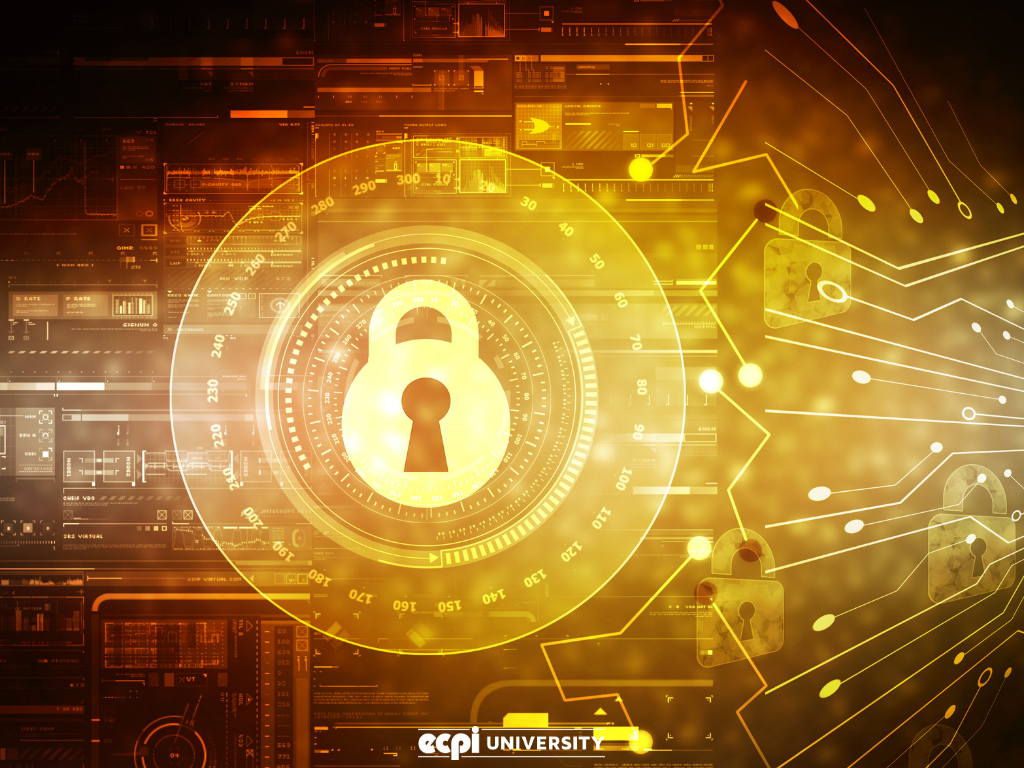Where Did Cybersecurity Come From and Why is it So Important?
Digitization has greatly improved the quality of life. From online education, working, socializing, hobbies all the way to shopping. However, with digitization came data breaches and hacking. Cybersecurity is an integral part of any business or organization. It has become so common that these days it only makes headlines when celebrity photos are leaked.
The U.S government spent 14.4 billion dollars on cybersecurity in 2018. These figures indicate the importance of cybersecurity. This is why the demand for cybersecurity professionals is expected to get higher.
What Is Cyber Security?
Cybersecurity refers to the practice of protecting networks, systems, and programs from digital attack. Most people associate cybersecurity with computers, but it is broader than that. It extends to all digital devices. Cyber-attacks are carried out with the aim of destroying, accessing, or altering sensitive information for monetary gain or disruption of business. To mount a meaningful cyber defense, the people, technology, and processes must work together.
Why Cybersecurity Professionals Are Important
Hackers are more sophisticated. A new crop of younger, aggressive hackers is coming up. “Hacktivism” is a real thing now. This makes businesses more vulnerable since some hackers can decide to breach your systems just to make a statement. Almost all businesses and government organizations have websites and external systems. Hackers target exploit the weaknesses of these systems to gain entry into systems.
Cost of Data Breaches. Many big companies have been the unfortunate victims of data breaches in the past. Remedying breached systems is an expensive affair, sometimes requiring setting up a completely new cybersecurity infrastructure. A new study by IBM revealed that the average cost of a data breach in America is $ 7.9 million compared to the global average of $3.9 million.
Readily Available Hacking Tools. Hacking has been commercialized making the hacking tools easily available for anyone. The programs and software can be obtained from open source platforms. It is not just the skilled, organized and well-funded hackers’ businesses need to worry about. The lesser skilled individuals can also target less secure systems and cause serious damage.
The Emergence of IoT Devices. There is an increasing demand for smart devices. These devices are connected to the internet and are able to communicate with each other. Smart appliances are already in offices and homes, with some homes completely automated. The downside of the technology is that the devices can be hacked since they are connected to the internet. A robust cyber security system is needed to protect the IoT devices.
How to Earn a Degree in Cybersecurity?
If you are interested in pursuing a career in Cybersecurity you can enroll in a cybersecurity degree program from a college or university. The following are some of the basic requirements for admission to a degree program.
- High school diploma.
- A GED or it is equivalent.
- Good performance in Math, English, and Social sciences is an advantage.
You can generally choose between online learning or physically attending the classes, depending on your availability and goals. The coursework for the degree program is designed to give the students in-depth knowledge in various areas of cybersecurity. They include:
- Data Analysis
- Risk Management
- Computer Programming.
- Fundamentals of Networking
- Ethical Hacking
- Cryptography
- Artificial intelligence
Benefits of a Cyber Security Degree
The following are some of the unique benefits that come with pursuing a career in Cybersecurity.
Cybersecurity Generally Pays Well. The salary of the security specialists is quite higher than that of other professionals. Security analysts are being paid well compared to other digital-related professionals.
Cybersecurity Jobs Are On the Rise. It’s estimated that there’ll be 3.5 million unfilled positions by 2021. The industry is currently expanding by 12% per year and is expected to grow by 28% by 2026 according to the Bureau of Labor Statistics.
Plenty of Career Options. With a degree in Cybersecurity one can in different capacities. You can find work as a Security engineer, Penetration tester, Cryptographer, Virus Technician, Vulnerability analyst, and many more.
Are you interested in a career in cybersecurity? If you want to earn a Bachelor of Science Degree in Computer and Information Science with a Major in Cyber and Network Security - Cybersecurity Track, consider ECPI University for the education you need. For more information, connect with a helpful admissions professional today.
It could be the Best Decision You Ever Make!
DISCLAIMER – ECPI University makes no claim, warranty, or guarantee as to actual employability or earning potential to current, past or future students or graduates of any educational program we offer. The ECPI University website is published for informational purposes only. Every effort is made to ensure the accuracy of information contained on the ECPI.edu domain; however, no warranty of accuracy is made. No contractual rights, either expressed or implied, are created by its content.
Gainful Employment Information – Cybersecurity Track - Bachelor’s
For more information about ECPI University or any of our programs click here: http://www.ecpi.edu/ or http://ow.ly/Ca1ya.





